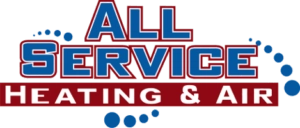Give us a call now for an immediate match with a local pro.
Click to Call(833) 824-3371(833) 824-3371
Last Updated: February 25, 2025
If you're like the typical American homeowner, more than half of your energy bill (55%, according to the U.S. Department of Energy) goes toward heating and cooling your home. It's important to make sure the cooling and heating systems in your Dallas home are working properly, so that you don't spend more than necessary.
Our list of Dallas' top HVAC companies can help you save money by getting your HVAC system installed, repaired or replaced by the right person for the right price.

Our Rating
User Rating
Free quotes
Reliable customer support
Clear pricing policy
Prompt service delivery
Informative resources
Services Offered

Our Rating
User Rating
Clear pricing policy
Informative resources
Prompt service delivery
Free quotes
Reliable customer support
Services Offered

Our Rating
User Rating
Free quotes
Reliable customer support
Informative resources
Services Offered

Our Rating
User Rating
Clear pricing policy
Reliable customer support
Informative resources
Free quotes
Services Offered

Our Rating
User Rating
Informative resources
Free quotes
Prompt service delivery
Reliable customer support
Clear pricing policy
Services Offered

Our Rating
User Rating
Prompt service delivery
Informative resources
Reliable customer support
Free quotes
Services Offered

Our Rating
User Rating
Clear pricing policy
Free quotes
Reliable customer support
Informative resources
Services Offered

Our Rating
User Rating
Reliable customer support
Free quotes
Prompt service delivery
Clear pricing policy
Informative resources
Services Offered

Our Rating
User Rating
Clear pricing policy
Informative resources
Free quotes
Services Offered

Our Rating
User Rating
Clear pricing policy
Informative resources
Free quotes
Reliable customer support
Services Offered
Today's Homeowner looks at dozens of datapoints on hvac companies to come up with our data-driven rankings. It's not possible for a company to pay for preferential treatment in our rankings. We look at the following key factors in determining who should top our list:
If your HVAC system is broken or getting near the end of its lifespan, it likely needs servicing or replacement from an HVAC company. Look for these signs your system needs service:
If you notice any of the above, have a local HVAC technician inspect your system. They can diagnose problems and let you know whether repair or full HVAC replacement is the better solution.
What you spend on HVAC installation or maintenance is determined by your system style. Common HVAC unit styles include the following:
HVAC maintenance prices vary based on the work needed. HVAC systems are complex and may need several types of maintenance. Prices for common jobs are as follows:
| HVAC Unit Type | Cost | |
|---|---|---|
| Split | $1,971-$5,025 | |
| Hybrid Split | $3,994-$7,359 | |
| Heat Pump | $3,093-$31,515 | |
| Packaged Heating and Air | $259-$431 |
Fixing your HVAC by repairing or replacing parts when needed is crucial, but can be expensive. Thankfully, there are steps you can take to reduce gradual wear and tear on your system.
| Service | Cost | |
|---|---|---|
| Filter Replacement | $65-$173 | |
| Condensor Cleaning | $1,294-$3,882 | |
| Thermostat Repair | $86-$216 | |
| Ductwork Cleaning | $414-$1,035 |
Knowing what to look for in an HVAC company is crucial for a successful project. Partnering with an experienced, licensed contractor can offer you peace of mind and ensure your system provides reliable heating and air conditioning for your home.
Get quotes from at least three HVAC companies. Explain your issues and ask if specialists can inspect your system in person. Compare each provider's diagnoses, recommended solutions, estimated cost, timelines, and warranties. Avoid companies that pressure you or demand payment before work.
Look for an HVAC company that employs skilled technicians with the necessary licensure and training. HVAC contractors in all states must obtain a Section 608 Technician Certification from the Environmental Protection Agency (EPA). This certification is required for all contractors who "maintain, service, repair or dispose of equipment that could release refrigerants into the atmosphere." An individual must pass an exam (the type of exam depends on what kind of equipment they intend to work with) to be certified by the EPA. All other licensing requirements are handled at the state level.
In Texas, HVAC contractors are required to be licensed by the Texas Department of Licensing and Regulation. Contractors must have at least four years of experience within the past six years and must show proof of insurance. An individual can also be a registered technician, which has no experience requirements, or a certified technician, which requires two years of experience. Both registered and certified technicians must be supervised by a licensed contractor. Reviewing feedback on Google Reviews, Yelp, the Better Business Bureau (BBB), and similar sites can help your decision. Choose a company with stellar reviews and reports of positive customer experiences.
Always make sure you know the details of any project. For HVAC repairs, your provider should list which parts need replacement and why. Confirm that your technician will clean and test the system after repairs are completed to verify that it’s working properly. When replacing your HVAC system, have the provider describe the new brand, energy efficiency, model, estimated installation time, and features. Before signing a contract, ask how your provider plans to accurately size the unit for your home and how much it will cost.
Reliable HVAC companies offer warranties on repairs and equipment installations. The more complete the coverage, the better. Compare warranty details between companies and pick the one that offers the most comprehensive protection for a fair price.
Always get HVAC bids in writing before work begins. A detailed quote will cover costs for both materials and labor. Ensure that you understand all terms before signing the contract.
You should have your HVAC system inspected approximately twice annually. After the inspection, your technician will tell you what services are required. You should also schedule an inspection if you start noticing issues such as leaks, strange noises, or unusual smells. If your system has ductwork, it should be inspected every few years.
Generally, it's a good idea to schedule inspections in the spring and fall, as these times tend to be less busy. This also helps get your system ready for the summer and winter, when it probably sees the most use.
You can save energy during the summer by making it easier for your HVAC system to keep your home cool. Set your thermostat as close to the outside temperature as you comfortably can, and avoid making drastic changes in temperature all at once. Keep your roof in good shape and seal any door or window leaks to help keep cool air in. Similarly, ensure that your attic is well ventilated to avoid trapping excess heat in your home.
Generally, HVAC installation or replacement takes one to three days for the entire system. Installing or replacing an air conditioning unit or a furnace takes anywhere from about half a day up to two days. The exact amount of time will vary depending on factors like how large your home is, how easily accessible different sections are, and whether your technician runs into any problems.
For a 2,000-square-foot home, you need around 2.5 to 5 tons of air conditioning capacity. In Dallas, you'll probably want to purchase a unit on the higher end of this range. For a house over 1,000 square feet, central air will generally be more effective for cooling than window units.
For a 2,000-square-foot home, you should also look for a furnace that is between 50,000 and 80,000 BTUs (British thermal units). In Dallas, you may be able to make do with a lower-capacity furnace.
Typically, HVAC financing is offered through a third-party lender. If your HVAC company doesn't offer these options, you could consider taking out your own loan. Be sure to speak with your HVAC company and a financial advisor to find out what options are available to you and appropriate for your situation.
There are a number of ways you can make your HVAC system more energy-efficient:
